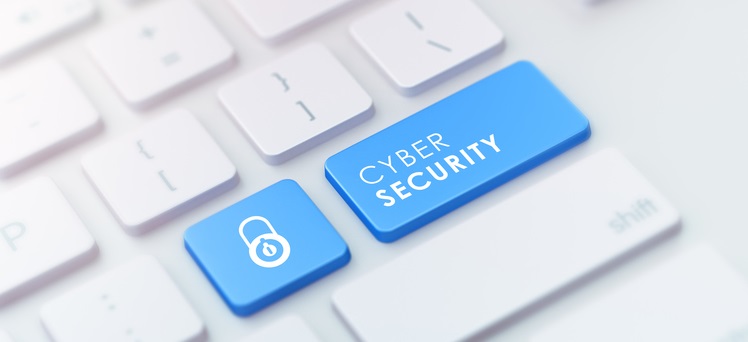8 Cyber Security Tips that Everyone Should Be Aware of
Cybercrime is growing every single day and people are losing millions of dollars due to cyber-attacks. Moreover, private and personal information is being shared online due to data breaches.
If you search for the victims online, you will definitely find thousands of people who lost personal data, money and even got their identities stolen. It is not just normal people, but big firms, government agencies, and even platforms such as Facebook where hackers gained access to more than 30 million user's accounts, become a victim of these attacks.
So, it is important to take appropriate measures and keep yourself secure because one-mistake can cost a lot. You don't necessarily have to invest hundreds or thousands of dollars for online safety. There are a few tips that you can use to decrease the chances of becoming a victim. These tips include;

Use Firewall & Anti-Virus
Anti-virus software might not seem like a lot but it actually keeps your devices safe from any malware. For instance, if you connect a USB device to your system that contains a virus, it will instantly block them to keep your device away from harm.
So, it is always a good idea to install anti-virus software on your devices. Moreover, go for trusted vendors and only install one software at a time.
For that, you can also discuss with your internet service provider as they generally offer different anti-virus software and security suites along with the internet service by partnering with trusted security software providers. For instance, HughesNet internet offers Norton Security subscriptions for its customers who are looking for anti-virus software.
Along with that, using a firewall is also very important which keeps you safe from online harms by screening out the traffic. The operating system that you are using might have its firewall because Windows and Mac come with that.
- Strong Passwords
Some of us use simple passwords so that we can remember them easily. Moreover, we tend to use the same password for all the accounts to avoid any issues of mixing different passwords because, honestly speaking, remembering so many different passwords is super exhausting.
However, that is exactly one of the things that make us the victim because a password is sort of a major line of defense. Once anyone has access to any account's password, it would be super easy for them to log-in to others. That is why it is recommended that we should not use our name, date of birth, pet's name, and other things like that as our password.
- Two-Factor Authentication
Due to increasing cases of account hacking, a new feature was introduced a few years back that requires people to verify their login by entering a code sent to their email or mobile phone. That additional layer of security is known as two-factor authentication.
This is something that can keep our accounts safe even when someone can log in using the password.
- Avoid Clicking Links from Unknown or Untrusted Sources
Phishing is among the major reasons that give hackers access to your system. So basically, you receive an email, a text message with a link, or a phone call where the sender poses as someone who needs your information such as credit card details, social security number, or passwords or asks you to click that link.
When people click those links, it allows hackers to access their devices and steal all the information that they want. So, never open links in the random promotional emails, or text messages with the promises to become a millionaire overnight, or any other email with malicious links. Always hover over the link to see where it directs you before clicking.
- Update Software Regularly
Software updates usually include bug fixes and update your computer or the app to the most recent and secure version that includes the solutions for previous vulnerabilities. This helps to keep attackers away and keep your devices safe.
For that, you can turn on the auto-updates for the software and operating system so everything gets updated automatically.
- Avoid Public Wi-Fi
Public Wi-Fi is generally less secure because the information and the traffic can be seen by everyone. Hackers use these Wi-Fi hubs to target people and steal their information.
So, don't use public Wi-Fi unless it is necessary and when you are doing that, use the VPN. A VPN encrypts the traffic, which makes it difficult for hackers to access your data.
- Track Your Account Activity & Credit Reports
Although there is no solid way of knowing whether someone has access to your accounts & your information or not, you can keep a track of your account activities to know if there is something off about it.
Similarly, check your credit reports and bank account statement to see if there have been any unauthorized credit checks or any transactions that you never performed.
- Regularly Back-Up Your Data
Storing back-ups for your data is very important because cyber-attacks are not just done for money, they are also done for getting information. And the best way to deal with them is to format your system drive and remove all the data to remove any harmful files.
So, it is always a good idea to back up your data in case you ever become a victim of these attacks and need to format everything to get rid of the malware.
Final Verdict
Millions of phishing emails are sent every day and countless people become victims of cyber-attacks. Most of the time, victims don't even know about these attacks and live under the illusion that they are safe. So, taking appropriate measures is necessary for everyone and the only way to avoid such situations.